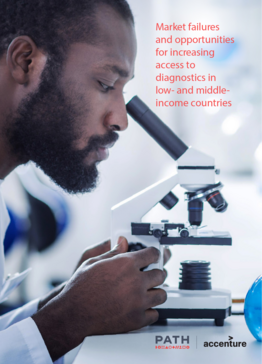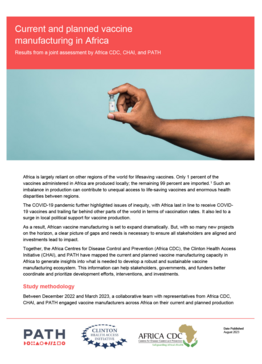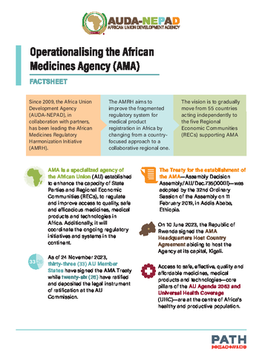Overview

Introduction:
The 20th Heads of State and Government Summit of the Group of 20 (G20) in 2025 will mark a significant milestone for the Voices of Africa, where Africa will be hosting its first G20 Summit since inception in South Africa. 2025 will also be the last year of the Global South Troikaship to address the perspective and challenges of developing nations in the global south and deliver on the common vision shared by India, Brazil, and South Africa.
The ensuing troika membership has presented an opportunity to leverage the broader India, Brazil, and South Africa (IBSA) Dialogue Forum. The IBSA Forum objectives are to promote international poverty alleviation and social development; to promote the trilateral exchange of information, international best practices, technologies, and skills, as well as to complement each other’s competitive strengths into collective synergies. When the Foreign Affairs Ministers established IBSA in 2003, they may not have foreseen its poignant relevance during and after the COVID-19 pandemic, yet, this visionary initiative finds special resonance in issues of pandemics, universal health coverage and health security.
During the Bali Summit in 2022, H.E. Cyril Ramaphosa, President of the Republic of South Africa and then AU Champion for Africa's COVID-19 response called for the African Union to be a permanent member of the grouping just as European Union is. The G20 Member States heeded to this call and as of 2024, the African Union now forms part of G20. The African Union’s permanent membership of the G20 grouping not only is a testimony of progress towards realizing the Agenda 2063’s goal of making Africa a key player in the Global Arena but will also allow the African Union to have a major say on the issues which are of great importance for Africa.
During the past two G20 presidencies, the G20 collectively prioritized bolstering local and regional manufacturing capabilities and research networks to enhance the accessibility of vaccines, therapeutics, and diagnostics (VTDs), especially in resource-constrained settings. Indonesia facilitated an agreement with six other G20 countries—Argentina, Brazil, India, South Africa, Saudi Arabia, and Turkey—to establish a collaborative center for vaccine manufacturing. As outlined in both the Bali and New Delhi Declarations, G20 members committed to reducing the timeframe for VTD manufacturing and distribution from 300 to 100 days while ensuring regulatory oversight, access, and affordability. The upcoming G20 Presidencies also present a crucial opportunity to respond to the growing demand for collaborative frameworks at both national and international levels.
There have been key developments in the rapidly advancing global and continental Pandemic Prevention, Preparedness and Response (PPPR) architecture, which includes other formal processes such as the BRICS, G7, G20, UNGA High Level Meeting, all of which have a bearing on Africa’s PPPR agenda. A critical component of PPPR is the need to continue building on Africa’s manufacturing capacity to attain equity in access to life saving medical countermeasures and technologies. Existing investments are falling short of the long-term sustainable changes needed to reduce health inequities and build stronger, more resilient health systems. Too often, investments are short-term and uncoordinated, focusing on scaling up specific health solutions or addressing vertical health challenges.
On September18, 2023, on the margins of 78th United Nations General Assembly, the African Union Organs (The Commission, Africa CDC, AfCFTA Secretariat and AUDA-NEPAD) hosted a High-Level side event which provided updates on key global and regional PPPR developments and explored ways of expanding the continent's efforts to strengthen self-sufficiency through a development of a strong and viable manufacturing of all health products. The event underscored the need for Africa’s journey to self-reliance in health security as well as cross-border coordination. Moreover, the need for continental supply coordination and joined procurement was established and the opportunities of a pooled procurement mechanism (PPM) for demand guarantee and offtake certainty outlined.
In October 2023, The AU through the Africa CDC launched the Platform for Harmonized African Health Products Manufacturing (PHAHM) Ministerial working group with an objective to harmonize health products manufacturing in Africa. In addition, the 37th AU Summit decided to expand the Partnerships for African Vaccine Manufacturing (PAVM) to diagnostics and therapeutics under PHAHM. The idea is to frame and adopt a continental approach to ensure synergy and complementarity of ongoing manufacturing initiatives and establishment of a PPM for health products technologies that secures a healthy market for the African manufacturing sector.
As Brazil took over the G20 Presidency early this year, they have made a proposal to create an alliance for local and regional production and innovation in health, to be led by the G20. The Alliance could promote enabling policy and legal environments and end-to-end ecosystems for equitable access, innovation, and production, to ensure public return on investments.
Moreover, amidst these advancements, the African Medicines Agency (AMA) establishment following the coming into force of its treaty on November 5, 2021, is emerging as a game-changer in strengthening the pharmaceutical landscape in Africa. AMA operationalization, currently at a tipping point with its Governing Board just established, marks a pivotal moment in addressing the myriad challenges faced by the African pharmaceutical industry. The African Medicines Regulatory Harmonisation (AMRH) initiative, serving as the foundation for AMA, has been instrumental in laying the groundwork for regulatory harmonisation and capacity building across the continent. AMRH's efforts have facilitated the alignment of regulatory processes and standards, paving the way for the establishment and effective functioning of AMA. AMA's mandate includes enhancing the capacity of national and regional regulatory authorities to harmonize regulations and streamline processes, bolstering laboratory capacity for reliable testing, and advocating for policy harmonization that incentivizes local production, including the manufacturing of vaccines within Africa.
This proposed side-event in the sidelines of the upcoming 77th World Health Assembly represents a valuable opportunity for the African Union, Brazil, Kenya, and South Africa to articulate their priorities on local and regional production and innovation in health and rally support from regional and global agencies and manufacturers. The side-event will contribute to jointly setting a pathway towards the operationalization of the G20 led local and regional production and innovation in health. The event will also offer the AU Member States and G20 countries an opportunity to explore strategies to enhance research and development, pooled procurement, and manufacturing in the global south, in line with commitments to global health security.
This convening builds on previous engagements, including the June 2023 Global Vaccine Research Collaborative Discussion on Vaccine Research and Development meeting held in India, the September 2023 High-Level Meeting on PPPR and Manufacturing held on the sidelines of UNGA and October 2023 First Manufacturers Marketplace for Vaccine Manufacturing African Union Member States in Morocco, the G20 Second Health Working Group Meeting in April 2024 in Brazil, and many other led by South Africa, India, and Brazil.
To register, visit: shorturl.at/prLQ6
you agree to the AUDA-NEPAD Privacy Policy.





